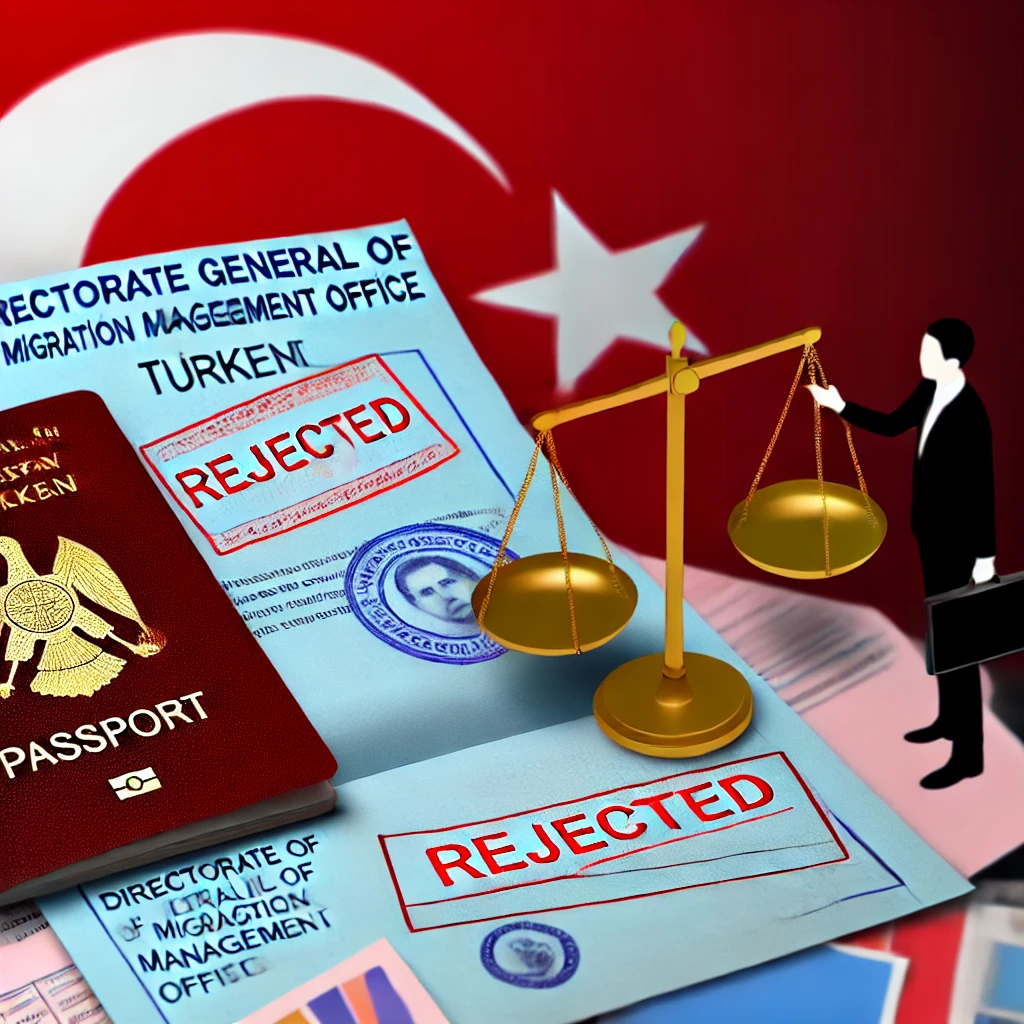Introduction
Turkey offers various residence permits to foreigners for tourism, work, education, and family reunification. However, compliance with the terms and conditions of these permits is crucial to maintain legal status in the country. Violations of residence permits can lead to significant legal consequences, including fines, deportation orders, and entry bans. This article examines the types of residence permits available, common violations, the administrative and legal consequences, and remedies for foreigners facing legal action.
1. Types of Residence Permits in Turkey
According to Law on Foreigners and International Protection (Law No. 6458), foreigners in Turkey can apply for several types of residence permits:
- Short-term residence permits: For tourism, real estate ownership, and participation in cultural activities.
- Work permits: Also considered as residence permits, issued to foreigners working in Turkey.
- Student residence permits: For foreign nationals pursuing education in Turkish institutions.
- Family residence permits: For spouses and children of Turkish nationals or legally resident foreigners.
- Long-term residence permits: For those residing in Turkey continuously for at least eight years without interruptions.
2. Common Violations of Residence Permits
- Overstaying the Validity Period
- One of the most frequent violations occurs when foreigners stay beyond the expiry date of their residence permit without applying for a renewal or exit.
- Failure to Update Address or Marital Status
- Foreign residents are required to update their address and marital status within 20 days. Failure to notify the authorities may be treated as a breach of the residence permit terms.
- Unauthorized Work Activities
- Foreigners with non-work-related residence permits (such as tourist visas) are not allowed to engage in employment. Violating this provision results in administrative fines and deportation.
- Non-Compliance with Purpose of Stay
- A tourist residence permit, for example, does not permit engagement in business activities. If a foreigner deviates from the purpose declared when obtaining the permit, the permit may be revoked.
3. Legal Consequences of Permit Violations
- Fines and Administrative Penalties
- Overstaying fines depend on the length of the overstay. Foreigners who fail to pay the fines may face an entry ban ranging from one month to five years.
- Cancellation of Residence Permit
- The Directorate General of Migration Management (DGMM) has the authority to revoke permits for non-compliance with Turkish laws or breach of residence conditions.
- Deportation Orders
- Foreigners violating permit rules may be subject to deportation. Deportation is often issued for those:
- Involved in illegal employment.
- Posing a threat to public order or security.
- Overstaying their visa or residence permit beyond the allowable grace period.
- Foreigners violating permit rules may be subject to deportation. Deportation is often issued for those:
- Entry Bans
- In cases of severe violations, Turkish authorities can impose entry bans that prevent the foreigner from re-entering Turkey for a specified period.
4. Legal Remedies and Appeals
- Administrative Appeals
- Foreigners have the right to appeal decisions regarding permit cancellations, fines, or deportation orders within 15 days of receiving the decision. Appeals are submitted to the Provincial Directorate of Migration Management.
- Judicial Remedies through Administrative Courts
- If administrative appeals are unsuccessful, foreigners can seek remedies in Turkish administrative courts. Legal representation is recommended for foreigners to ensure effective handling of the case.
- Suspension of Deportation Orders
- In some cases, courts may suspend deportation orders, particularly for individuals who have ongoing family ties or humanitarian grounds to remain in Turkey.
5. Preventing Violations: Best Practices for Foreign Residents
- Timely Renewal of Permits
- Foreigners should apply for renewal of residence permits at least 60 days before the expiration date to avoid penalties.
- Complying with Reporting Requirements
- Foreigners must notify the authorities about address changes or changes in personal status to avoid breaches of permit terms.
- Consulting Legal Experts for Complex Issues
- Foreigners with unique situations (such as business activities or intermarriage) should seek legal advice to ensure compliance with Turkish regulations.
Conclusion
Turkey provides a range of residence permits for foreigners, but compliance with the conditions of these permits is essential to avoid legal consequences. Violations, such as overstays, unauthorized work, or failure to report changes, can result in fines, permit cancellations, deportation orders, and entry bans. Understanding the legal framework and adhering to the regulations can prevent complications, ensuring that foreign residents can enjoy their stay in Turkey without interruptions. Legal remedies are available to those facing administrative penalties, but timely action is critical to safeguard rights and prevent escalation.

Yanıt yok